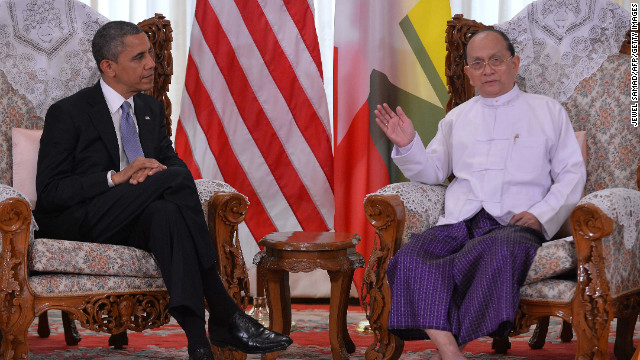US invite of Slaughterer Myanmar president, slap in face of Rohingyas: Analyst

 Myanmar President Thein Sein’s invitation to the United States is a slap in the face of the Rohingya Muslims, a prominent activist tells Press TV.
Myanmar President Thein Sein’s invitation to the United States is a slap in the face of the Rohingya Muslims, a prominent activist tells Press TV.
“The invitation for Thein Sein to come to the White House is like a slap on the face to the ethnic minorities, to those people who have to suffer at the hands of these Burmese military,” Myra Dahgaypaw, affiliated with the US Campaign for Burma, said in an interview on Thursday.
The Myanmar president met with US President Barack Obama in Washington on May 20, encouraging Obama to lift sanctions against the Southeast Asian country despite its failure to stop sectarian violence against its Muslim population.
Obama paid a visit to Myanmar last November and praised the government, which opened up limited trade between the two countries and removed Sein from its list of banned officials.
The latest promotion of ties between the United States and Myanmar coincides with a new surge of violence by Buddhist extremists against Rohingya Muslims – who are not regarded as citizens by the Myanmar government.
“If we are talking about genuine reform, if we are talking about reform for all the people for the better of our lives, for the people of Burma, these Rohingya people are also the people of Burma. These reforms have to also benefit them. But at this point we haven’t seen anything, anybody that will be pushing the Burmese authorities and Aung San Suu Kyi to do more than what they are doing now,” Dahgaypaw said.
Described by the UN as one of the most persecuted minority groups in the world, Rohingya Muslims account for about five percent of Myanmar’s population of nearly 60 million. They have been persecuted and faced torture, neglect, and repression since the country’s independence in 1948.
Amnesty International and Human Rights Watch have also called on Myanmar’s government to address the plight of the Rohingya Muslim population and to protect the community against extremists.







